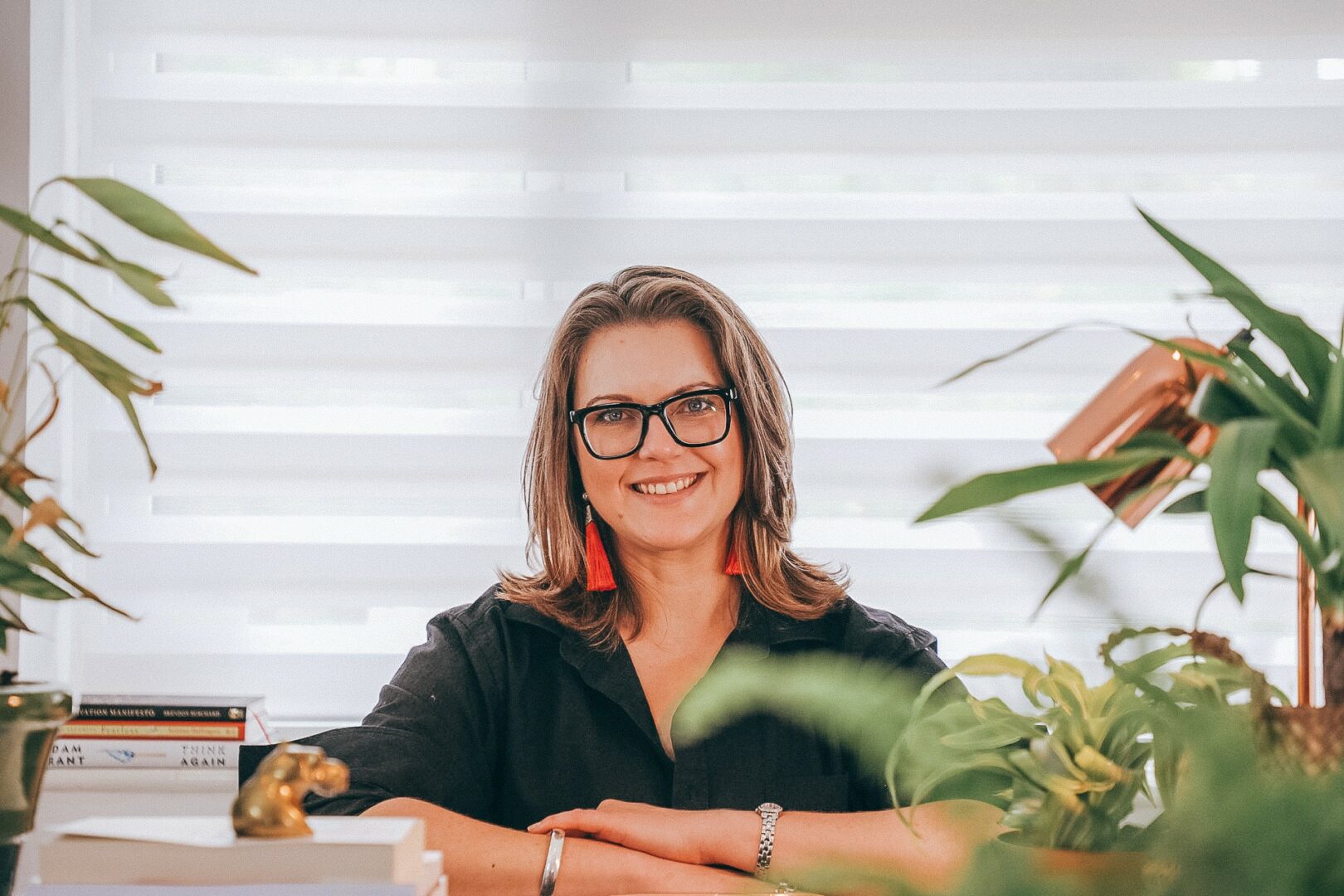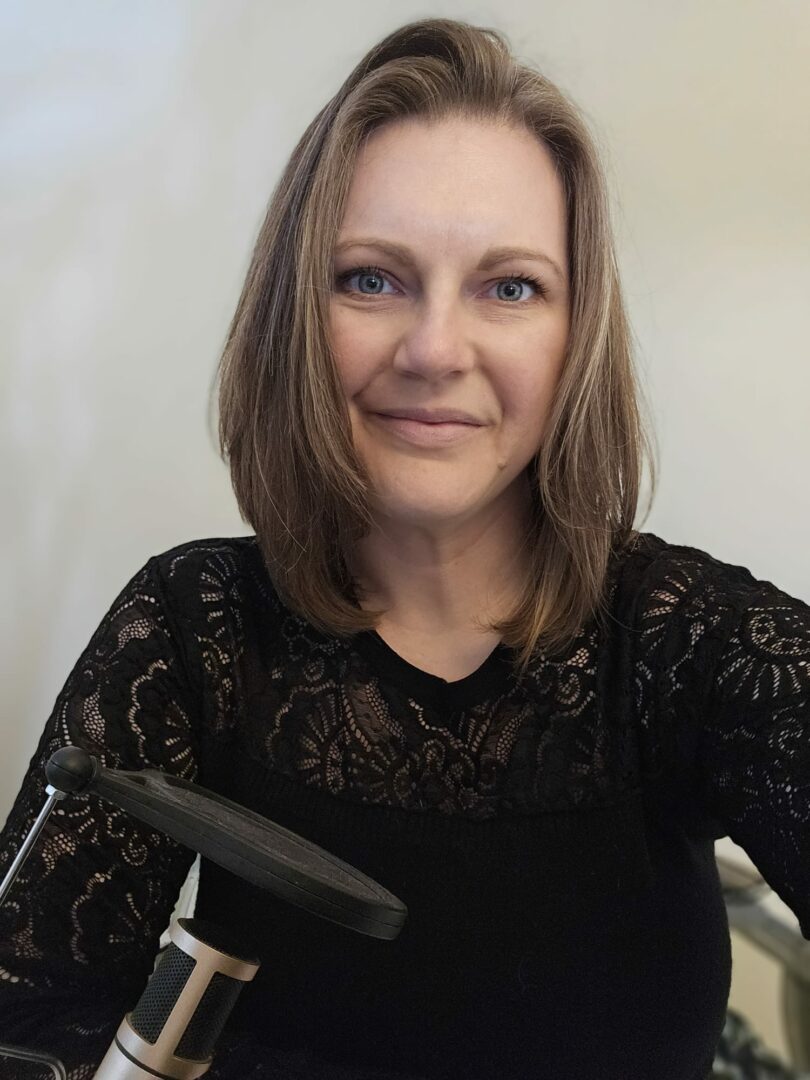Alright – so today we’ve got the honor of introducing you to Ashleigh Hayden PCC. We think you’ll enjoy our conversation, we’ve shared it below.
Ashleigh, thrilled to have you on the platform as I think our readers can really benefit from your insights and experiences. In particular, we’d love to hear about how you think about burnout, avoiding or overcoming burnout, etc.
I did not overcome or avoid burnout. In 2017 I experienced an emotional collapse, shortly after resigning from my corporate role in financial services. It was the culmination of three or four years spent proving myself: proving I was of value and worthy of respect by prioritising work above everything else.
I know now this was burnout. At the time, I didn’t have the language to explain what was happening to me. My rock-bottom was failing a simple accounting test at an interview. It was the first time I acknowledged I wasn’t okay.
I didn’t understand what had happened until years later, when I began training as a coach in 2020. The process gave me self-awareness and compassion for the first time – finally, I could give shape to something that had, until then, been invisible.
My recovery wasn’t quick – it was slow and messy.
I spent several years rebuilding, I spent several years becoming an ICF PCC accredited coach, trained in Acceptance and Commitment Therapy (ACT) and began learning about neuroscience. I have come to understand just how tightly my identity was tied to my job, my sense of worth or value to my output and how long I had been living in survival mode. Over time I’ve also learnt how employers can contribute to burnout – how the culture I worked in had rewarded over-functioning at the expense of wellbeing.
Recovery, for me, was a thousand small choices. Prioritising myself. Tuning into my body. Honouring my worth as intrinsic – not something to be earned through output. Setting uncomfortable boundaries. And reimagining what success could mean to me – on my terms.
I am deeply grateful for my experience no matter how challenging it has been. It has shaped the work I do now. Alongside the tools and training, my lived experience means I can offer my clients something both practical and deeply human. I work with high-performing, high-capacity, often quietly exhausted leaders and founders meeting them with compassion for their experience and proven tools for meaningful change.

Thanks, so before we move on maybe you can share a bit more about yourself?
I am the founder of Hexagon Gold Professional Coaching, I work with “unintentional leaders” typically business owners building a team to support their booming business or executives who are usually a year into leading a team. My clients are high-performing, values-led and incredibly capable people who care about their people but have recognised something needs to be different. Communication may feel hard, resilience may feel exhausting, or success may feel hollow. Often they’re on the brink of burnout but may not call it that – they may not feel they’re a leader either.
What makes my work special is the way we approach these experiences. My approach is grounded, emotionally intelligent, neuroscience informed and enables my clients to explore their experience without judgment, criticism or consequence.
Right now, I am focused on my Reset Days – a full day of immersive, in-person coaching designed to help leaders step away from the office and recalibrate. Using diagnostic tools to explore resilience and communication patterns, we spend the day untangling what is keeping them stuck and reshape an authentic, sustainable approach that powers performance. You might call it a pause with purpose.
There is so much advice out there about all the different skills and qualities folks need to develop in order to succeed in today’s highly competitive environment and often it can feel overwhelming. So, if we had to break it down to just the three that matter most, which three skills or qualities would you focus on?
My game changers have been self-awareness, emotional regulation, and space to think with safe people.
Self-awareness has been critical to my recovery and crucial to my role as a coach. Developing self-awareness (with the help of coaching, training, and generous mentors) gave me language for what I was feeling, tools to make sense of it, and ultimately the power to choose differently. If you’re early in your journey, give yourself permission to slow down and notice.
Emotional regulation means to hold all your emotions with compassion and choice, no matter how challenging or uncomfortable. This skill allows us to get curious about how we feel and speak up for what we need rather than creating shame laced stories.
I used to believe there was one “right” way, the right answer, the right move, the right version of success. Over time, I’ve learned to make space for uncertainty, nuance, and possibility. That’s made me more creative, more resilient, and much more comfortable saying “I don’t know, yet.”
If anything I’ve said has resonated with you, my advice is to build a circle of people who you trust, who you can speak openly to and who are able to challenge, comfort and celebrate you. If not, get a properly qualified coach!

Alright so to wrap up, who deserves credit for helping you overcome challenges or build some of the essential skills you’ve needed?
Coaches.
Without question.
Coaches have played an important role in my recovery from burnout, my professional development and my personal evolution as a human being.
Formally hired, peers, supervisors and mentors, coaches have held space, given me perspective and helped me develop self-trust, reconnect with myself and redefine what success means to me.
Contact Info:
- Website: https://hexagongold.com/
- Instagram: https://www.instagram.com/hexagongoldltd/?hl=en
- Facebook: https://www.facebook.com/hexagongoldltd
- Linkedin: https://www.linkedin.com/in/ashleighhaydenuk/
Image Credits
Ashleigh Hayden
so if you or someone you know deserves recognition please let us know here.




